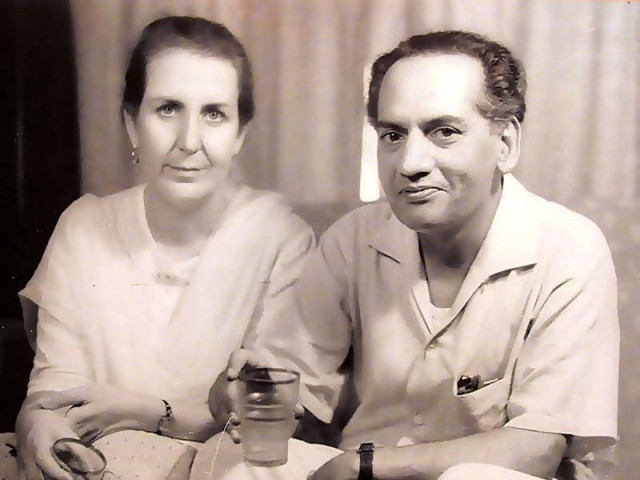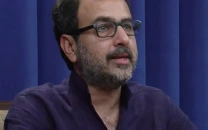Faiz’s elder daughter saunters down memory lane
Salima says her father was a firm believer in women's liberation and autonomy

"All the years my father lived he lived only because of my mother,” says revolutionary Urdu poet Faiz Ahmad Faiz's elder daughter, Salima Hashmi.
Taking a trip down memory lane on the occasion of her father’s 111th birth anniversary in an interview with BBC, Salima meditated on aspects of her childhood that set it apart from that of others and shared memorable snippets of days that flashed by in the absence of her father.
"He would not be in Lahore for most of the time as he spent much of time in jail. So on rare occasions when his presence in home coincided with his birthday, we would all together celebrate it as our own birthday.”
She shared that her grandmother could barely tell the exact date of birth and the only recollection of the day of his birth in her mind was that it happened to be a cold and rainy day.
"We had been wrongly assuming for years that our father’s birthday was in January. But one of our family members, who had a knack for spying, went to Sialkot and checked through all the records. He went to the office of the municipal corporation and found out that our father's date of birth is actually 13th February 1911.”
And then February 13 became the official date, she added. Faiz Ahmed Faiz was born in Sialkot more than a hundred years ago, with official records showing February 13, 1911, as the date of birth. He shared his hometown with Pakistan’s national poet, Allama Muhammad Iqbal.
Faiz’s father, Sultan Mohammad Khan, was a poor shepherd boy, the son of a landless peasant in Kala Kader, Sialkot, who taught himself Persian as well as Urdu and English and, by a fortuitous combination of hard work and intelligence rose to become the then Afghan king’s personal interpreter and senior minister.
Traces of Faiz in Srinagar
Faiz and Alys were married at the house of M.D. Taseer in Srinagar in October 1941. Their nikah was performed by Sher-i-Kashmir, Sheikh Mohammed Abdullah, the leader of the National Conference.
Speaking about it during the interview, Salima said at the place where her parents tied the knots now stands a girls' college and the room in which their nikah was performed is now a college’s library.
"I have seen the place myself. All the books of Faiz Ahmed Faiz are kept in a section of the library called Gosha –e-Faiz.”
Saleema Hashmi says that when she moved to Srinagar with her husband Shoaib Hashmi around 2006, the music society and the principal of the college organised a program where the students of the college recited Faiz's poems.
'Never forced his will on us'
Being brought up in a literary and politically influenced family, Salima said her father never forced her to read or write anything. “He was very much aware that in this society women should be independent and should not depend on any man. He was a firm believer in women's liberation and autonomy.” I and my sister got married of our own free will, she added.
Faiz breathed his last on 20th November 1984 at the age of 73 years. He is buried in Lahore’s Gulberg graveyard. He was also among the first-ever official Pakistani delegation to visit Bangladesh. At the conclusion of the Bangladesh tour, he wrote his famous ghazal “Hum Kay Thehray Ajnabi”.
He was awarded the Lenin Peace Prize in 1963, which was equivalent to the Nobel Prize in the then USSR. His notable works include Naqsh-e-Faryadi, Dast-e-Sabah and Zindan-Nama.



















COMMENTS
Comments are moderated and generally will be posted if they are on-topic and not abusive.
For more information, please see our Comments FAQ